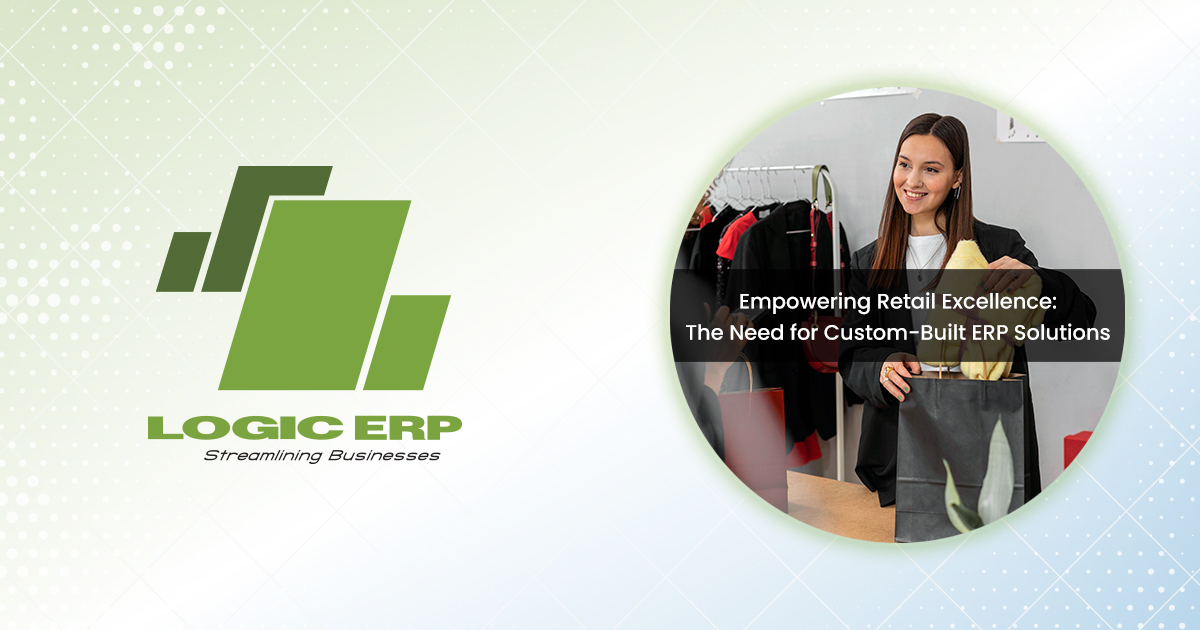

In the dynamic landscape of the retail industry, businesses are constantly seeking innovative solutions to enhance efficiency, streamline operations, and gain a competitive edge. One of the key technological advancements revolutionizing the way retailers operate is the implementation of Custom-Built ERP (Enterprise Resource Planning) solutions. In this blog, we will delve into the significance of custom ERP solutions tailored specifically for the retail sector, exploring the benefits, challenges, and the transformative impact on business operations.
Understanding the Retail Landscape:
The retail industry operates on a multifaceted stage, encompassing a vast array of processes from inventory management and supply chain logistics to customer relationship management and sales analytics. A one-size-fits-all approach often falls short in meeting the unique requirements of retailers, leading to inefficiencies, inaccuracies, and missed opportunities for growth.
Benefits of Custom-Built ERP Solutions for Retail:
-
Tailored to Unique Business Processes: Unlike off-the-shelf ERP solutions, custom-built ERP systems are designed with the specific needs and workflows of a retail business in mind. This ensures seamless integration with existing processes, reducing the need for extensive modifications and minimizing disruptions during implementation.
-
Scalability and Flexibility: Retail businesses, especially those experiencing growth, require systems that can scale with them. Custom ERP solutions provide the flexibility to adapt and evolve alongside the business, accommodating changes in size, product lines, and market demands without major overhauls or disruptions.
-
Enhanced Inventory Management: Effective inventory management is crucial for retail success. Custom-built ERP solutions enable retailers to optimize stock levels, reduce carrying costs, and improve order fulfillment accuracy. Real-time visibility into inventory levels across multiple locations ensures that stockouts and overstocks are minimized, enhancing overall operational efficiency.
-
Integrated Supply Chain Management: The retail supply chain is complex, involving multiple stakeholders, from suppliers to distributors. A custom ERP solution integrates supply chain processes, providing end-to-end visibility and control. This results in better coordination, reduced lead times, and improved collaboration with partners, ultimately enhancing the overall supply chain efficiency.
-
Personalized Customer Experiences: The modern consumer demands a personalized shopping experience. Custom ERP solutions for retail enable businesses to gather and analyze customer data, allowing for the creation of targeted marketing campaigns, personalized promotions, and loyalty programs. This not only improves customer satisfaction but also fosters brand loyalty.
Challenges in Implementing Custom ERP Solutions:
While the benefits of custom-built retail erp software are substantial, it’s essential to acknowledge the challenges associated with their implementation:
-
Initial Investment: Developing a custom ERP solution requires a significant initial investment in terms of time and resources. However, the long-term benefits often outweigh the upfront costs, as the system becomes a tailored asset that contributes to increased efficiency and profitability.
-
Expertise and Skill Set: Implementing a custom ERP solution demands a high level of technical expertise. Retail businesses may need to invest in training or hire experienced professionals to ensure a smooth transition and ongoing system maintenance.
-
Change Management: Introducing a custom ERP solution entails a shift in organizational processes. Resistance to change among employees can be a significant challenge. Comprehensive change management strategies, including training programs and clear communication, are essential to facilitate a smooth transition.
Conclusion:
In the rapidly evolving retail industry, the adoption of custom-built ERP solutions has emerged as a strategic imperative for businesses aiming to stay competitive and responsive to market dynamics. The tailored nature of these solutions empowers retailers to address unique challenges, optimize operations, and deliver exceptional customer experiences. While challenges exist, the long-term benefits in terms of efficiency, scalability, and adaptability position custom ERP solutions as a cornerstone for success in the retail landscape. As the industry continues to evolve, LOGIC ERP is not just a choice but a strategic necessity for retailers looking to thrive in the digital era.

